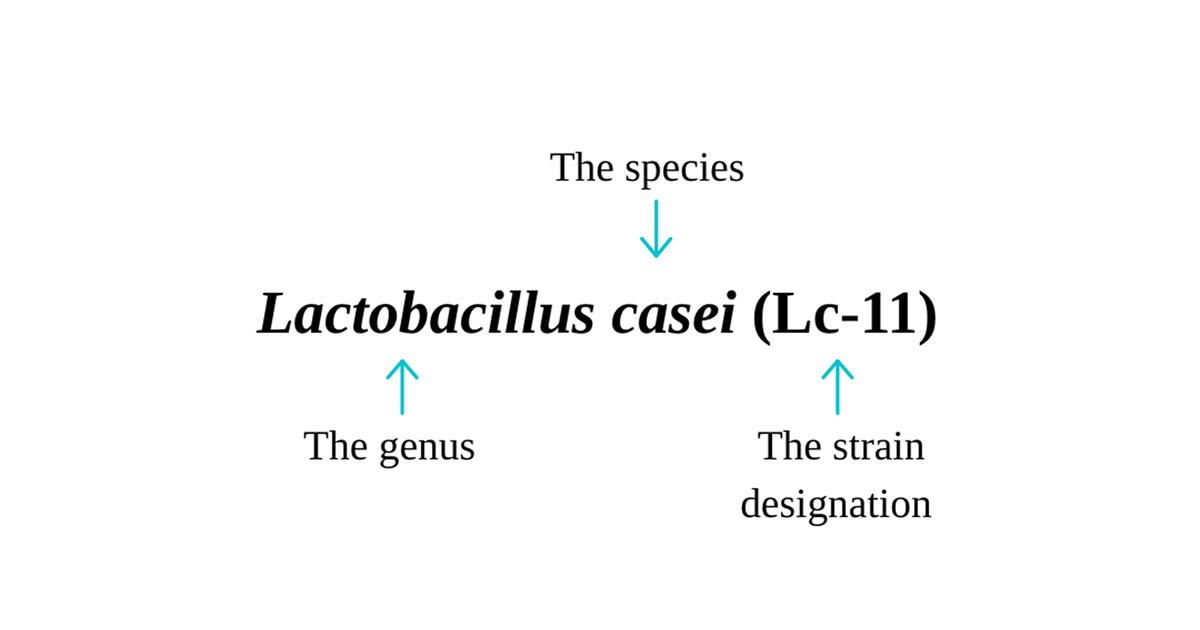How to Find a High-Quality Probiotic Supplement That You Actually Need
Last Updated on December 12, 2022
Medically Reviewed by Yasmine S. Ali, MD, MSCI
Finding the right probiotic supplement can be confusing. Understanding things like what a probiotic strain means, how they work for different conditions, how to determine a high-quality supplement, and more can guide you in making the right choice.


- Basics of Probiotics
- Health Benefits of Probiotics
- What Are Prebiotics & Synbiotics?
- Understanding Probiotic Strains
- Probiotic Strains for Specific Conditions
- How to Tell If It's High Quality
- Understanding CFUs
- Understanding Dosage
- Side Efffects of Probiotics
- How & When to Take Probiotics
- How to Store Probiotics
- Length of Time It Takes to Work
- Cost of Probiotics
- Do I Need to Take a Probiotic?
- Should Kids Take Probiotics?
- Bottom Line
With hundreds of probiotic supplements on the market shelves, how do you even know where to begin?
There is a lot to consider when choosing the best probiotic supplement for you. Since probiotics have the potential to provide many health benefits to your body, it’s important to have a good understanding of the things to consider before making your selection.
Find out all you need to know about choosing a probiotic supplement in this guide.
Quick Summary of Steps to Take
These are the steps to go through that will help you make your decision on choosing a probiotic supplement:
- Research your condition. For best results, it is best not to randomly choose a general probiotic. Do some research on the best strains for whatever condition you are trying to treat, and go from there. It is also a good idea to discuss this with a medical doctor specializing in gut health, such as a gastroenterologist.
- Determine whether you want a probiotic or synbiotic supplement. Once you find out what probiotic strains you may need, you should also consider whether you are going to take these strains on their own, or in combination with a prebiotic food or supplement to create a symbiotic.
- Determine what form and storage requirements you need. Ask yourself whether you want to be swallowing pills, drinking a powder, or so on. Also, consider storage requirements. If you travel a lot, refrigeration may not be practical, so choose brands that have storage requirements that match what works for your lifestyle.
- Choose a trustworthy brand. Look for third-party testing, such as by USP, NSF, or Consumer Lab.
- Determine which dose you may need. You may decide to go with the recommended dose listed on the label, or determine it using guidance from your healthcare professional.
The Basics of Probiotics
Probiotics are a type of live microorganisms that can offer health benefits when they enter your body. (1) They are often thought of as good bacteria.
Probiotics help balance out the mixture of helpful and harmful bacteria in your body to create a healthy environment for your gastrointestinal tract. This mixture of bacteria is known as your gut microbiome. (2)
You can obtain probiotics through food and supplements.
Common sources of probiotic foods include: (3)
- Yogurt with live and active cultures
- Some types of raw cheeses
- Miso
- Kimchi
- Tempeh
- Sauerkraut
- Kombucha
- Kefir
- Pickles
In recent years, probiotics are also sometimes added to a variety of manufactured foods that wouldn’t otherwise contain them.
Related: Probiotic Foods to Add to Your Diet
What Are The Health Benefits of Probiotics?
While probiotics directly influence your gut microbes, they offer health benefits that involve much more than just your digestive tract.
Some of the top health benefits of probiotics include:
- Supporting digestive disorders. This may include conditions like irritable bowel syndrome (IBS) and ulcerative colitis. (4, 5) It can also involve general digestive symptoms such as bloating and irregular bowel movements like constipation. (6)
- Reducing the negative effects of antibiotics. Diarrhea is a common side effect of taking certain antibiotics. Probiotics can help replenish the microbiome when antibiotics kill off both good and bad bacteria. (6)
- Strengthening your immune system. About 70%–80% of your immune cells are located in your gut. (7) Probiotics can play a role in preventing you from getting sick, as well as making your immune system more capable of fighting off disease that is already present. (8)
- Helping with weight management. Research has shown that probiotics can help prevent obesity. They do this by altering your microbiome and changing the way your body stores and burns energy in the form of calories. (9)
- Benefiting your skin health. Your skin has its own microbiome, and probiotics have been shown to support skin conditions like acne, psoriasis, eczema, and rosacea. (10)
To read about even more health benefits of probiotics, check out this article.
Summary
Benefits of probiotics include supporting good digestive health, strengthening your immune system, supporting a healthy weight, benefiting your skin, and reducing antibiotic-associated diarrhea.
What Are Prebiotics and Synbiotics?
Probiotics are sometimes confused with prebiotics, but the two are different things.
Prebiotics are not a type of bacteria. Instead, they are a type of complex carbohydrate called dietary fiber. They serve as fuel for probiotic bacteria to allow the probiotics to do their job most effectively. (11)
When both a pre- and probiotic are present in a food or supplement, it is referred to as a synbiotic.
Some research has reported that consuming synbiotics can have greater benefit in promoting a healthy gut than consuming individual pre- or probiotic supplements. (12)
Understanding Probiotic Strains
Probiotics are uniquely identified by their specific strain. A strain refers to the type of bacteria it is. A probiotic strain includes the genus, species, and an alphanumeric strain designation. (11)
For example, using the example of the probiotic Lactobacillus casei (Lc-11):

| “Lactobacillus” | The genus, or the broader category of bacteria |
| “casei” | The species |
| "Lc-11" | The strain designation, which sets it apart from other genus and species of the same type |
| Abbreviation | L. casei Lc-11 |
Each probiotic strain serves a different purpose.
The strain is what determines the probiotic’s role in your body, since not all probiotics serve the same functions. Some work more on the immune system, while others play a bigger role in your intestinal tract, and so on.
This is why paying attention to the types of strains in a probiotic supplement is so important, as it can make a big difference when treating or trying to prevent a health condition.
Which Probiotic Strains to Take for Specific Conditions
So how do you know which types of probiotic strains are best for different types of conditions?
Digestive Disorders
In 2017 the World Gastroenterology Organization (WGO) compiled a chart of specific probiotic strains, along with a recommended dosage, based on specific health conditions that probiotics have successfully treated.
Here is a small sampling of their findings regarding digestive disorders: (13)
| Health Condition | Probiotic Strain, Prebiotic, or Synbiotic That May Help |
|---|---|
| Acute Diarrhea | Saccharomyces boulardii CNCM I-745 |
| Irritable Bowel Syndrome (IBS) |
Multi-strain probiotic Lactobacillus rhamnosus NCIMB 30174, L. plantarum NCIMB 30173, L. acidophilus NCIMB 30175, and Enterococcus faecium NCIMB 30176 OR Bifidobacterium longum 35624 (14) |
| Constipation |
The prebiotic Lactulose OR Prebiotics fructo-oligosaccharides and Lactobacillus paracasei Lpc37, L. rhamnosus HN001, L. acidophilus NCFM and Bifidobacterium lactis HN019 |
| Antibiotic-Associated Diarrhea |
Lactobacillus acidophilus CL1285 and L. casei Bio-K+ CL1285 OR Lactobacillus rhamnosus GG OR Saccharomyces boulardii CNCM I-745 |
| Lactose Intolerance (Maldigestion) | Yogurt with live cultures of Lactobacillus delbrueckii subsp. bulgaricus and Streptococcus thermophilus |
| Infant Colic Management | Lactobacillus reuteri DSM 17938 |
| Ulcerative Colitis (Inducing Remission) | Mixture containing strains of Lactobacillus plantarum, Lactobacillus casei, Lactobacillus acidophilus, Lactobacillus delbrueckii subsp. bulgaricus, Bifidobacterium infantis, Bifidobacterium longum, Bifidobacterium breve and Streptococcus salivarius subsp. thermophilius |
This list is not comprehensive, and new research on probiotic strains for various health conditions is emerging on a regular basis. You can view the entire guide from the World Gastroenterology Association here.
Other Health Conditions
In addition, here is a table outlining other health conditions and specific probiotic strains that have been shown by research to help:
| Health Condition | Probiotic That May Help |
|---|---|
| Obesity (Promoting Weight Loss) (15) |
Lactobacillus gasseri, L. rhamnosus, L. plantarum, L. curvatus associated with other Lactobacillus species and/or with species from the Bifidobacterium genus OR Lactobacillus gasseri SBT2055 (11) |
| Seasonal Allergies (16) | Lactobacillus gasseri KS-13, Bifidobacterium bifidum G9-1, and Bifidobacterium longum MM-2 |
| Depression (17) | Probiotics in the Lactobacillus and Bifidobacterium species (note that this research was done in mice) |
| Eczema (18) |
Combination of: Bifidobacterium bifidum BF3, Bifidobacterium breve BR3, Lactobacillus acidophilus LA1, Lactobacillus plantarum LP3, Lactobacillus rhamnosus LR5, Lactobacillus lactis SL6, Streptococcus thermophilus ST3 |
Summary
A probiotic strain is the specific type of bacteria the probiotic is. Each strain serves a different purpose and can be used for treating different conditions. For example, Lactobacillus acidophillus may be better for antibiotic-associated diarrhea, while Lactobacillus gasseri is better for seasonal allergies, and so on.
How to Tell If a Probiotic Supplement Is High-Quality
Unfortunately, the supplement industry in America is not well-regulated by the Food and Drug Administration (FDA). In fact, the FDA is not authorized to approve dietary supplements for safety and effectiveness before they are sold in stores. (19)
This means there could be many low-quality probiotic (and other supplement) brands on the market.
They either may not contain what they claim to on the label, or they may contain a form of bacteria that cannot survive the journey to your digestive tract in order to have positive effects in your body.
This is why it is so important to select only high-quality probiotic supplements. One way to help ensure this is to purchase from brands that can certify they are third-party tested.
Third-party testing ensures high-quality supplements that have the right potency, contain no contaminants, and include forms of the product that are able to be effectively absorbed by the body. (20)
Supplements that have been third-party certified should have a certification stamp displayed on the label from the certification company. Examples include USP, NSF, Consumer Lab, & GMP. (21, 22, 23)
In some cases, you may only find this information on the brand’s website but not on its label.
Summary
Because the supplement industry is not well regulated by the FDA, it is important to buy probiotic supplements from brands that have been tested by a third party — such as USP or NSF.
Understanding CFUs
The potency (or strength) of a probiotic is measured in colony-forming units (CFUs).
CFU refers to the number of bacteria that are able to be used by your body, and is often listed on probiotic supplement packaging. (11)
A higher CFU count generally means that more bacteria will be available to provide potential benefits. (11)
The International Scientific Association for Probiotics and Prebiotics suggests you avoid buying probiotics that list the number of CFUs “at time of manufacture” since total CFUs can decline over a product’s lifespan.
Therefore it is best to find a product that ensures total CFUs through the expiration or “use by” date. (11)
Understanding Dosage
A probiotic supplement’s dose refers to the amount of CFUs in the product.
Many probiotic supplements contain between 1 to 10 billion CFU per dose, but some can contain over 50 billion CFU.
Dosage also involves how much of the supplement you need to take at one time to receive that amount of CFUs (i.e., one pill once a day, two pills twice a day, etc.).
Because there are so many different types of probiotic supplements, there is no universal dosage for taking them.
According to the World Gastroenterology Organization, the optimal dose of probiotics depends on the strain and product. (11)
It may also depend on the condition you are trying to treat. This is why it is best to receive guidance from a gut health specialist on the right dosage for you.
According to the International Scientific Association for Probiotics and Prebiotics, a higher CFU count is not always better.
They report that the best dose is the one that has been tested in humans (not animals) and was shown to provide positive outcomes. These doses can range from 100 million to over a trillion CFU per day. (24)
Summary
CFU refers to the potency of a probiotic supplement. In general, a higher CFU count means more bacteria are available to serve its function.
Side Effects of Probiotics
According to the National Institutes of Health, probiotics are generally considered to be safe. (11)
There are rarely reported side effects of probiotics, and if they do occur, they are usually minor and may include things like a mild upset stomach or gas.
However, some people who have a significantly weakened immune system may be more likely to develop side effects of taking probiotic supplements. This may be because their bodies are not strong enough to handle the additional bacteria that are introduced.
These people should only use probiotics under the direction and guidance of a medical doctor or other certified healthcare professional.
How And When Should You Take Probiotics?
There are many different ways to take probiotic supplements.
They can come in many different forms, such as capsule, powder, liquid, and more. The method you use may depend on things like availability, preference, medical needs, and more.
When to take probiotics may also vary.
Some research has shown that taking probiotics on an empty stomach may be better than taking them with food.
This is because the process of eating produces stomach acid to help with digestion, and up to 60% of probiotic bacteria can be killed off by stomach acid before they are able to do their job effectively. (25)
Choosing a high-quality probiotic with a protective enteric coating can help it survive the harsh environment in the gut.
Ultimately, being consistent with when you take a probiotic supplement may matter more than the exact time you take them.
It is always a good idea to read the product’s label and work with a gut health specialist for guidance on how and when to take probiotic supplements.
Summary
Some research shows that taking probiotic supplements on an empty stomach may be better than taking them with food. However, being consistent with when you take probiotic supplements may matter the most.
Related: When and When to Take Probiotic Supplements
How Do You Store Probiotics?
Some probiotic supplements are shelf-stable, while others require refrigeration. This depends on how fragile the individual strains of bacteria are.
Some probiotic strains and forms can start to break down or die if exposed to too much heat, light, oxygen, or humidity.
The storage requirements of a probiotic do not necessarily mean they are of better quality. Always read the product’s label to make sure you store it correctly.
Also, be sure to use it before its expiration date.
How Long Do Probiotics Take To Work?
There is no exact timeframe for how long a probiotic supplement will take to work. Many factors are involved with this, such as:
- The type of probiotic strains involved
- The dosage
- The quality of the product
- The health conditions you are trying to treat
- How consistent you are with taking them
Some people may notice improvements within a few days of taking probiotic supplements, while for others, it may take a few months.
If you do not notice improvements within a few months of taking probiotics, it may be a sign to try a different type or dosage.
Again, it is always a good idea to discuss the use of probiotic supplements with your trusted healthcare professional before starting or stopping.
How Much Do Probiotics Cost?
As it is with many supplements, the price of probiotics will vary between brands — sometimes significantly.
Price can be determined by factors such as quality, availability, where you are buying it from, brand name, how many strains it contains, and more.
The length of time you take probiotic supplements will also determine how much you end up spending on them.
On the low end, probiotics may be as inexpensive as $10 to $15 a month. On the higher end, they may range between $70 to $100 per month.
If you receive a prescription for probiotics from your doctor, your insurance may cover all or part of the cost of specific brands.
Purchasing probiotics from reputable online discount markets like Vitacost and GoodRx may also help you receive the best price available.
It is important to remember to still purchase from third-party tested brands to ensure the best quality.
How Do You Know You Need A Probiotic Supplement?
There is no exact way to know whether or not you should take a probiotic supplement.
For some people, consuming probiotics in food may be enough to reap their benefits. For others, a supplement, which often provides much larger quantities of probiotics and different strains, may be indicated.
If you have a health condition that probiotic supplements have been shown to help, you may decide to take (or ask about taking) a probiotic supplement.
The decision to do so is ultimately up to you and a healthcare professional you may be working with. Some probiotic supplements may require a prescription.
Should Kids Take Probiotics?
There are many types of probiotic supplements available for infants and young children.
Some common reasons parents desire to give their child probiotics may include treating bowel problems, colic, acid reflux, skin conditions like eczema, allergies, and more. (26, 27)
According to research, the most documented benefits of probiotic supplements for children have been seen with the use of certain probiotic strains for treating the stomach virus and preventing antibiotic-associated diarrhea. (28)
While probiotics are considered low-risk for children, there is not yet enough research to make general recommendations for taking them.
One pediatric gastroenterologist from the Children’s Hospital Colorado reports that if a child eats a diet with plenty of variety, is growing and developing normally, and has no digestive issues, they probably don’t need a probiotic supplement. (29)
The Bottom Line
Probiotics are a type of live bacteria that can provide many health benefits to your body. Choosing which type of probiotic you should take can be a complex decision.
When choosing a probiotic supplement, things to consider include the following:
- Researching your condition.
- Determining what form and storage requirements you need.
- Deciding between a probiotic or synbiotic supplement.
- Selecting a trustworthy brand.
- Deciding on dosage.
Since the microbiome can change as a result of factors like diet, age, health conditions, and medication use (specifically, antibiotics), the type of probiotic you could benefit from may change over time. (30)
While there has been a lot of research on the use of probiotic supplements on various health conditions, there is still a lot more to learn. It’s always best to get guidance and approval from your doctor before starting to take a probiotic supplement.
At WellnessVerge, we only use reputable sources, including peer-reviewed medical journals and well-respected academic institutions.
- Probiotics: What You Need To Know – NIH:
https://www.nccih.nih.gov/health/probiotics-what-you-need-to-know - The Microbiome | The Nutrition Source | Harvard T.H. Chan School of Public Health:
https://www.hsph.harvard.edu/nutritionsource/microbiome/ - Probiotics - the versatile functional food ingredients - PMC:
https://www.ncbi.nlm.nih.gov/pmc/articles/PMC4837740/#:~:text=The%20common%20sources%20of%20probiotics,fermented%20dairy%20product%20is%20kefir. - Probiotics — even inactive ones — may relieve IBS symptoms - Harvard Health:
https://www.health.harvard.edu/blog/probiotics-even-inactive-ones-may-relieve-ibs-symptoms-2020062220303 - Probiotics and Microorganisms – Crohn's and Colitis Foundation:
https://www.crohnscolitisfoundation.org/complementary-medicine/probiotics-microorganisms - Systematic review: probiotics in the management of lower gastrointestinal symptoms – an updated evidence‐based international consensus - PMC:
https://www.ncbi.nlm.nih.gov/pmc/articles/PMC5900870/ - The Interplay between the Gut Microbiome and the Immune System in the Context of Infectious Diseases throughout Life and the Role of Nutrition in Optimizing Treatment Strategies - PubMed:
https://pubmed.ncbi.nlm.nih.gov/33803407/ - Probiotics and immune health - PMC:
https://www.ncbi.nlm.nih.gov/pmc/articles/PMC4006993/ - The Gut Microbiome and Its Role in Obesity - PMC:
https://www.ncbi.nlm.nih.gov/pmc/articles/PMC5082693/ - The skin microbiome and the gut-skin axis – ScienceDirect:
https://www.sciencedirect.com/science/article/abs/pii/S0738081X21001930?via%3Dihub - Probiotics, Health Professional Fact Sheet – NIH:
https://ods.od.nih.gov/factsheets/Probiotics-HealthProfessional/ - Frontiers | Probiotics, Prebiotics, Synbiotics, and Paraprobiotics as a Therapeutic Alternative for Intestinal Mucositis:
https://www.frontiersin.org/articles/10.3389/fmicb.2020.544490/full#S10 - Probiotics and prebiotics – World Gastroenterology Organisation Global Guidelines:
https://www.worldgastroenterology.org/UserFiles/file/guidelines/probiotics-and-prebiotics-english-2017.pdf - Effect of Bifidobacterium longum 35624 on disease severity and quality of life in patients with irritable bowel syndrome - PubMed:
https://pubmed.ncbi.nlm.nih.gov/35317278/ - Effects of Probiotics and Synbiotics on Weight Loss in Subjects with Overweight or Obesity: A Systematic Review - PMC:
https://www.ncbi.nlm.nih.gov/pmc/articles/PMC8540110/ - Probiotics (Lactobacillus gasseri KS-13, Bifidobacterium bifidum G9-1, and Bifidobacterium longum MM-2) improve rhinoconjunctivitis-specific quality of life in individuals with seasonal allergies: a double-blind, placebo-controlled, randomized trial | The American Journal of Clinical Nutrition | Oxford Academic:
https://academic.oup.com/ajcn/article/105/3/758/4569700 - Exploring the Role and Potential of Probiotics in the Field of Mental Health: Major Depressive Disorder - PMC:
https://www.ncbi.nlm.nih.gov/pmc/articles/PMC8161395/ - Probiotics and Disease: A Comprehensive Summary—Part 6, Skin Health - PMC:
https://www.ncbi.nlm.nih.gov/pmc/articles/PMC6415629/ - Information for Consumers on Using Dietary Supplements | FDA:
https://www.fda.gov/food/dietary-supplements/information-consumers-using-dietary-supplements - How to Tell if Your Supplements are Third-Party Certified And Why You Should Care | Certifications by Nutrasource:
https://certifications.nutrasource.ca/blog/how-to-tell-if-your-supplements-are-third-party-certified-and-why-you-should-care#:~:text=When%20a%20product%20is%20third,and%20that's%20safe%20for%20consumption. - Dietary Supplements Verification Program | USP:
https://www.usp.org/verification-services/dietary-supplements-verification-program - Product and Ingredient Certification | NSF:
https://www.nsf.org/testing/health/nutritional-supplements-personal-care-products/product-and-ingredient-certification - GMP Certification | NSF:
https://www.nsf.org/testing/health/nutritional-supplements-personal-care-products/gmp-certification - Probiotics: Dispelling Myths – ISAPP:
https://isappscience.org/wp-content/uploads/2019/04/Dispelling-Probiotic-Myths.pdf - A Review of the Advancements in Probiotic Delivery: Conventional vs. Non-conventional Formulations for Intestinal Flora Supplementation - PMC:
https://www.ncbi.nlm.nih.gov/pmc/articles/PMC3909163/ - Lactobacillus reuteri to Treat Infant Colic: A Meta-analysis | Pediatrics | American Academy of Pediatrics:
https://publications.aap.org/pediatrics/article/141/1/e20171811/37745/Lactobacillus-reuteri-to-Treat-Infant-Colic-A-Meta?autologincheck=redirected?nfToken=00000000-0000-0000-0000-000000000000 - Frontiers | The Role of Prebiotics and Probiotics in Prevention of Allergic Diseases in Infants:
https://www.frontiersin.org/articles/10.3389/fped.2020.583946/full - Probiotics in Pediatrics. A Review and Practical Guide - PMC:
https://www.ncbi.nlm.nih.gov/pmc/articles/PMC8308463/ - Probiotics for Kids | Children's Hospital Colorado:
https://www.childrenscolorado.org/conditions-and-advice/parenting/parenting-articles/should-my-child-take-probiotics/ - Factors affecting the composition of the gut microbiota, and its modulation - PMC:
https://www.ncbi.nlm.nih.gov/pmc/articles/PMC6699480/
- Basics of Probiotics
- Health Benefits of Probiotics
- What Are Prebiotics & Synbiotics?
- Understanding Probiotic Strains
- Probiotic Strains for Specific Conditions
- How to Tell If It's High Quality
- Understanding CFUs
- Understanding Dosage
- Side Efffects of Probiotics
- How & When to Take Probiotics
- How to Store Probiotics
- Length of Time It Takes to Work
- Cost of Probiotics
- Do I Need to Take a Probiotic?
- Should Kids Take Probiotics?
- Bottom Line






